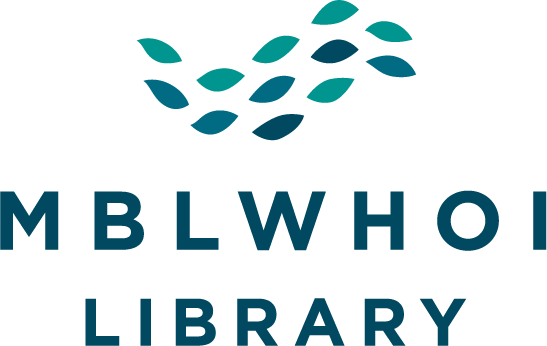Open Access Week 2025 – MBLWHOI Library Open Repositories
Who Owns Our Knowledge?
In the age of information, one of the most profound questions we face is: Who owns our knowledge? The internet, social media, and digital archives have made knowledge more accessible than ever before, but at what cost? Who controls the flow of information, and what are the ethical implications of who holds the keys to the treasure trove of human understanding?
What Are Open Repositories?
Open repositories, digital platforms that provide free, immediate and permanent access to research output for anyone to use, download, and distribute. They are where scholars, researchers, and creators share their works without restrictions, providing unrestricted access to their publications, data, and other resources. These repositories are a critical part of the growing open access (OA) movement, which advocates for the free and public dissemination of knowledge.
The Traditional Gatekeepers of Knowledge
Historically, most publishers own the rights to the articles in their journals–not the authors. Anyone who wants to read the articles pays a fee to access them. Institutions and libraries help provide access to paywalled research through costly subscriptions. Even then, no part of the article can be reused by researchers, students, or scientists without permission from the publisher, often at an additional fee.
Open Access (OA) publications reduce permission requirements and eliminate price barriers for readers. OA allows access to articles without subscription to researchers, teachers, journalists, scientists, policy makers and the general public
Open Repositories
MBLWHOI repositories are open access institutional repositories managed by the MBLWHOI Library as a service to the Woods Hole scientific community. The community is Marine Biological Laboratory, SEA Education, NOAA fisheries, USGS, Woods Hole Research Center now Woodwell Climate Research Center, Woods Hole Oceanographic Institution. The mission is to capture, store, preserve, and redistribute the intellectual output of the Woods Hole scientific community in digital form.
There are 2 MBLWHOI Open Access Repositories: WHOAS, Woods Hole Open Access Server and MBLWHOI Dataverse.
WHOAS was created in 2006 and until recently all deposits went into WHOAS, including datasets. WHOAS is now used to deposit everything except datasets, including publications, presentations, posters, photographs, letters, technical reports, and thesis.
MBLWHOI Dataverse repository, created earlier this year, accepts scientific data for deposit.
A New Era of Knowledge Sharing
The question of who owns our knowledge is no longer just about the institutions, corporations, or individuals who control information. It’s about creating a new framework for knowledge sharing—one that prioritizes collaboration, inclusivity, and accessibility. Open repositories are leading the charge, and the future of knowledge sharing looks more democratic than ever.
For more information on depositing data, articles, images, reports, or other items that need a DOI, please contact dla@whoi.edu.
